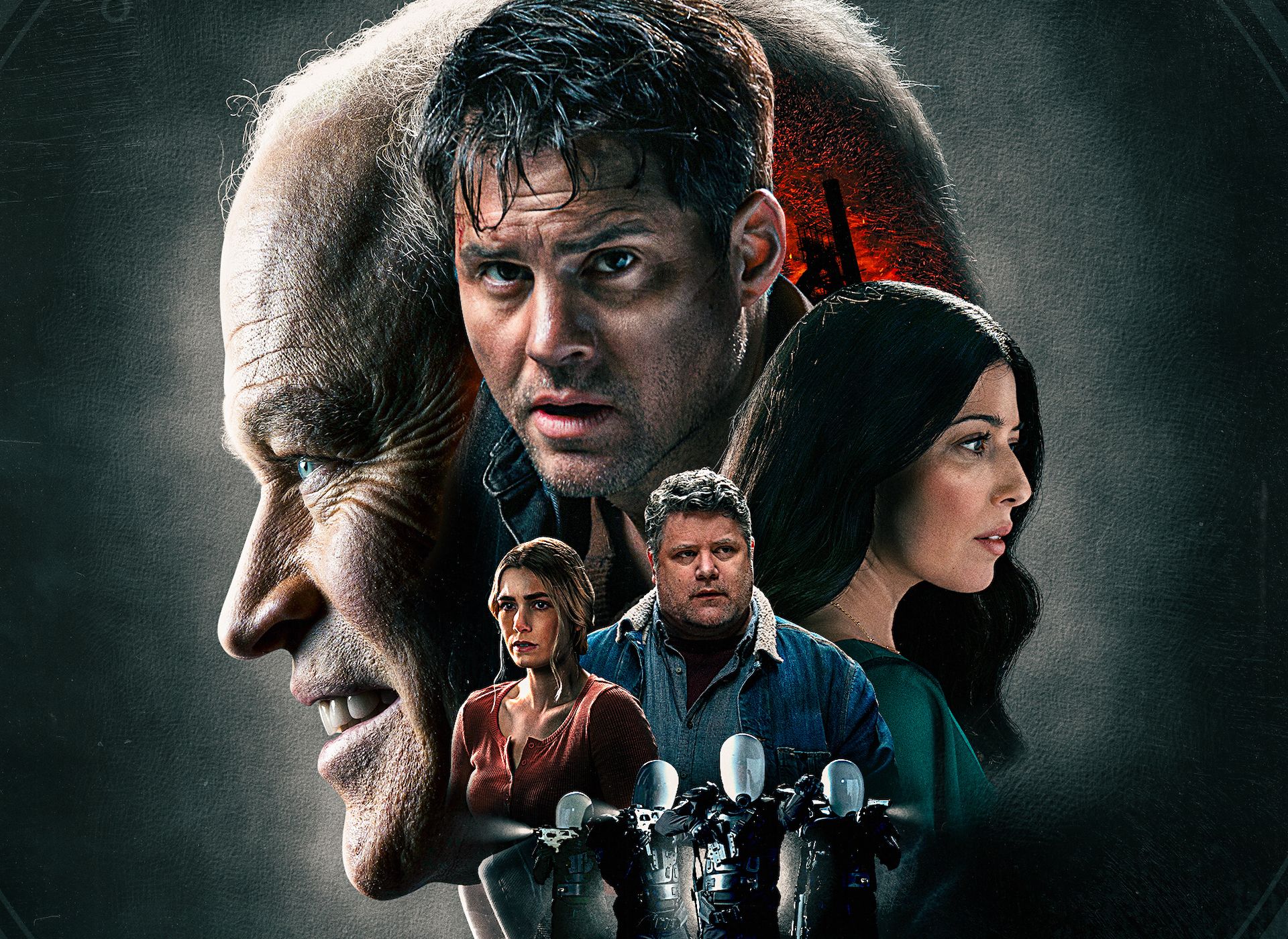
The Patience of Job
The Shift brings authentic moral weight to the multiverse genre.
Over the past five years, film producer Ken Carpenter and his company, Nook Lane Entertainment, have played a vital role in turning Franklin into one of the country’s most robust moviemaking hubs. With projects like the 2021 romcom Finding You and September’s Surprised by Oxford, Carpenter has shepherded early-career directors and their projects into some of the best films of their release years. More impressively, he has been able to do so while largely working in the oft-maligned faith-adjacent genre, proving that productions outside the Hollywood bubble can connect with viewers while developing their own distinct styles.
With his record of low-key, theologically dense, character-driven dramas largely set in pristine corners of Great Britain, Carpenter opting to make a down-and-dirty dystopian sci-fi picture in the less photogenic areas of Birmingham seemed a bit off-brand. However, The Shift not only retains the sophisticated treatment of faith Carpenter has brought to his other films but also proves a distinct and formidable entry in the multiverse storytelling subgenre that has become a cornerstone of our popular culture.
Directed by Brock Heasley in his feature debut, The Shift follows Kevin (Kristoffer Polaha), a run-of-the-mill former hedge fund trader whose life was shattered when his son went missing in a grocery store. The evening after a fight with his attentive wife (Elizabeth Tabish) and a “Come to Jesus” meeting with his man-bun sporting boss, a car T-bones him at an intersection. Kevin wakes up to find that a smartly dressed businessman who calls himself The Benefactor (Neal McDonough) has pulled him from the wreckage and into a parallel world.
This Satan in Burberry makes an offer for Kevin to assume a position as the right hand man to his multiverse chaos in exchange for everything he ever wanted. Kevin resists. Though he’s angry at God, he even prays the Benefactor away. But when he does, God abandons him in this dystopia with no one to rely on but his schlubby friend Gabrielle (Sean Astin). Kevin slowly finds himself becoming a force of resistance against the Benefactor’s army of makeshift Stormtroopers, but struggles to fulfill his destiny because he’s unable to shake the feeling that God has cut him off.
Traditionally, the Book of Job has proven an unwieldy allegory best left to the giants of literary history like John Milton, Herman Melville, and Ray Bradbury (whose Fahrenheit 451 Heasley’s film owes a great debt to). In a culture where evangelical megachurches often resemble self-help retreats more than institutions for deep theological study, the book of the Bible that turned the problem of suffering into a question that has flummoxed even our best theologians while serving as a fertile text for atheist counterarguments is dangerous ground for any filmmaker to tread.
Those still perplexed by the story often grapple with how a good God could nonchalantly replace Job’s children who became collateral damage in a friendly bet as if they were livestock and somehow make Job whole. The stuff of Rick Warren and Max Lucado this is not.
Yet, The Shift addresses these challenges head-on. There are no easy answers for Kevin like there were none for Job. The film could have careened toward a restorative Hallmarkish end without too much pushback. But Heasley is a subtle enough filmmaker to avoid such pitfalls. Carpenter is too, which is what has always set films like Finding You and Surprised by Oxford apart from the genre’s other recent offerings.
The Shift succeeds as a sterling example of the Christian movie, but it’s also a formidable genre film that takes the time to uniquely build its own world. Carpenter and Heasley certainly didn’t have Spider-Man, Doctor Strange, or The Flash money. They also would likely have appreciated the playground that A24 provided the Daniels to make their Oscar-dominating multiverse showpony Everything Everywhere All at Once.
But the dystopia they create in The Shift showcases both a care and chutzpah that make its world all the more authentic. Shooting on location in an American city weathered by years of economic downturn roots the film in the real world and provides an astute political context for Heasley’s treatise on individual freedom and free will.
It may lack the smarmy surrealism of Everything Everywhere, but it also shows characters grappling with personal responsibility and sacrifice that its predecessor completely glossed over. Everything Everywhere entered the zeitgeist because it acted as a collective therapy session that perpetuated a cycle of victimhood, a strategy that made it little more than a shallow exercise in TikTok hipsterism.
Marvel’s recent forays into the multiverse at least riffed on that “With great power comes great responsibility” line from the OG Spider-Man,” but their cold computer-generated world proved more hindrance than immersive experience. Heasley’s film doesn’t ape A24 aesthetics and proves a bit rough around the edges. But, like the best of filmmakers, he leans into those limitations and makes them central to the narrative world.
With The Shift, Carpenter and Heasley prove that multinational Hollywood conglomerates don’t have a monopoly on the sci-fi epic. More importantly, they show that faith-based narratives can cast a wider net when they are the work of filmmakers who care about the craft.
In The Everlasting Man, G.K. Chesterton wrote of Job as a book that answers mystery with mystery: “For when he who doubts can only say, ‘I do not understand,’ it is true that he who knows can only reply or repeat ‘You do not understand.’ And under that rebuke there is always a sudden hope in the heart and the sense of something that would be worth understanding.” It’s an artistic manifesto that should be achingly relevant in our current era. Luckily, Heasley and Carpenter have clearly taken it to heart.
The Shift is now playing in theaters.
